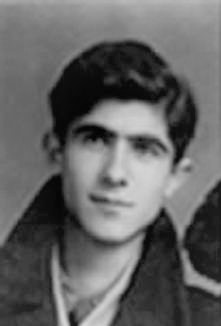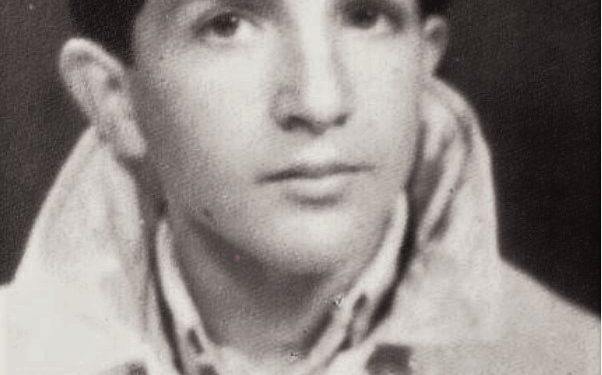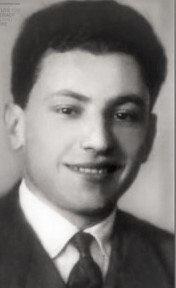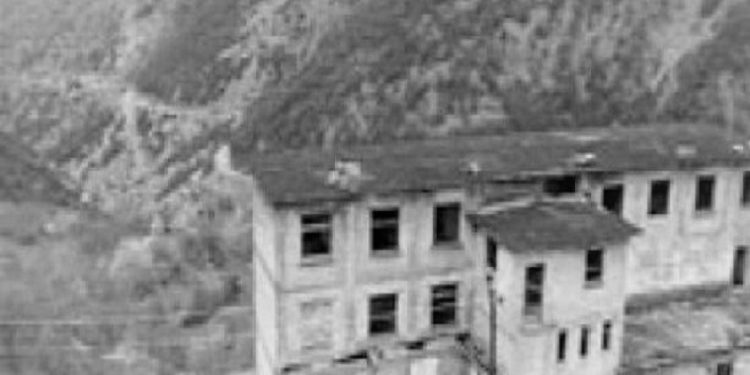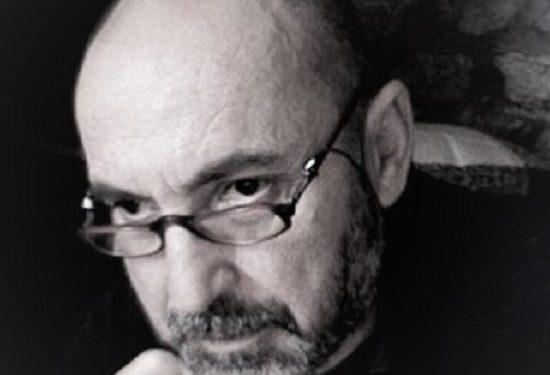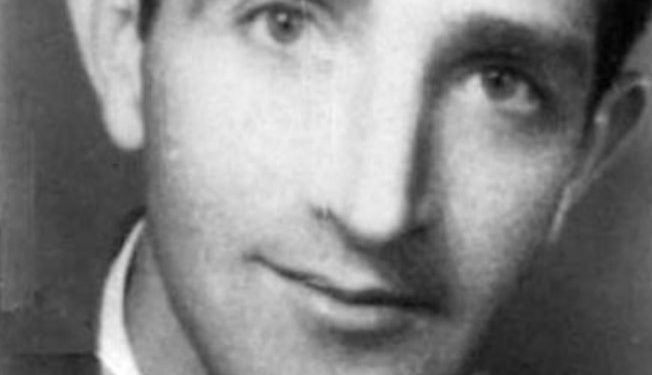From Skifter Kelliçi
The fourth part
Memorie.al/ It were the morning of May 20, 1994, when I entered the office of Skënder Buçpapaj, then General Director of Albanian Radio and Television. And not without purpose. I reminded him that, on May 28, it was 15 years since the shooting of Fadil Kokomani and Vangjel Lezho, two of the best journalists of Radio – Tirana, since its creation, as well as Xhelal Koprencka, another political prisoner, who was shot together with them. I added that, after the fall of the dictatorship, it was the occasion for this anniversary to be commemorated with a special ceremony.
Continues from last issue
About these problems in December 1961, when the break in diplomatic relations became public, I had a long conversation with Fadil Kokomani. And this, because he started talking with other friends, I was convinced that Enver Hoxha was already likely to connect with the West. In a word, it would happen more or less what had happened to Tito’s Yugoslavia, when Stalin expelled it from the socialist camp. But Fadili, with foresight, told me that this would never happen. And there was no way it was going to happen. He, as we said, was really a Soviet philosopher, but, at the same time, he was also a Western philosopher.
It is known how things went after the secession of Albania from Soviet Russia. At a time when all the countries of the socialist camp, called by Enver Hoxha already “revisionist countries”, that had betrayed Marxist-Leninist principles, began to change their attitude towards Western countries, Albania was connected to China, lagging behind in all directions.
And when China itself, seeing that this policy was isolating it from the world, established diplomatic relations with the USA and started a new course, the dictator Hoxha, instead of following this policy, broke away from China, just as he had broken away before from the Soviet Union and put Albania in complete isolation from the world.
This happened in 1978. It was at this time that Fadili and Vangjeli on the one hand, and Xelali on the other hand, wrote the above letters. They were driven by very high patriotic goals, to give a signal to the bureaucrats, who finally had the courage they had lacked, to get rid of Enver Hoxha, to save Albania, although they were aware that this it could hardly happen.
From this point of view, Jalal’s letter was more realistic. And this for the simple reason: Albania was connected to China like flesh, as they say: “Today the world has two lions/One Asia, one Europe…”, the people sang. If Enver Hoxha were to go after China, no one would be surprised, not only in Albania, but also in the entire globe, because these two countries already knew a long-standing friendship. If this had happened, Albania would have entered the world orbit since 1978 and it is understandable at what level it would be today.
However, it doesn’t really matter if Xelal’s letter was more realistic than Fadil’s and Vangjeli’s or vice versa. What elevates the figures of these forerunners of democracy is their unparalleled courage: From hell they gave a warning to the dictator and his clan to shake and think no longer about themselves, but finally about Albania, exhausted and ruined.
All three of the above-mentioned letter writers were arrested and sentenced to an additional 10 years for agitation and propaganda.
Surprisingly, Enver Hoxha did not follow the suggestion of his right-hand man, Hysni Kapos, for their physical elimination. Maybe he was generous or maybe Kapo and Alia didn’t dare to give him to read those ghastly letters, which would have pissed off the merciless dictator?…
However, death would stay over the head of Fadil, Vangjeli and Xelal like the sword of Damocles until another moment that would come very soon.
Finally – the death penalty
A few months later, the leaders of the Spaç concentration camp, through their agents, “discovered” that Fadil Kokomani, Vangjel Lezho and Xhelal Koprencka, had not only sent the above letters, but had also created organizations inside the camp. . This resulted in ten prisoners, including the two creators of this hostile group, i.e. Fadili and Vangjelin, together with Fatos Lubonja, Robert Vullkani, and others, were accused of “… participating in a counter-revolutionary organization, anti-socialist groups created by the arrested… to commit crimes against the state, as well as have agitated and propagated against the state, crimes provided for by articles 57 and 55/I of the Criminal Code”.
“It was a cool afternoon, at the beginning of May, – remembers Robert Vullkani, – when suddenly the sounds of the camp bell were heard, announcing the prisoners to gather in the square.”Within a few seconds, the camp commander and other soldiers did it.”
“There are dangerous enemies among you who never mend,” he roared. – One such is Xelal Koprencka, whom we are arresting in the name of the people”.
We were all stunned. But Xelal did not blink.
“In the name of the enemies of the people and not of the people, arrest me”, he then said with a smile.
“Words of gold”, Ramiz Melçja, a Shkodra prisoner who happened to be near Xelal, suddenly added loudly, who was sentenced to another ten years in prison just for these words.
Along with Xelal, Fadili and Vangjeli were immediately arrested, who were expecting such a thing.
Was it true that such groups were organized in the camp? For the communist inquisitors this did not matter. The physical disappearance of Fadil, Vangjeli, Xelal and maybe others, that’s what mattered most to them. So they were ready to invent everything.
The trial against the above defendants took place in one of the investigation rooms of Tirana in Burgun e Ri, in the last days of May 1979.
During this process, relying on the data of the book “Re-sentencing” by Fatos Lubonja, who was present as a defendant in this process, both Fadili and Vangjeli took a unique position in such court processes.
“The power in Albania,” said Fadili during this process, among other things, “has been usurped by the Stalinist leadership… I was and am against the terror and against the blood that was shed by Stalin and that was also shed in Albania by Enver Hoxha’s Stalinist policy.”
During his claim, the prosecutor pointed out:
“In November 1978, the defendants Fadil and Vangjel were convicted again for hostile activities. Although they were sentenced again, these sworn enemies did not cease their criminal activity, but deepened it, aiming to ensure the “success” of the organization’s goals through a revolt, which was to be led by its members, the other defendants who we judge today.”
Then he stopped at the other counter-revolutionary group that was represented by Xelal Koprencka, which demanded the overthrow of the government and depending on this, related to the pro-Russian and pro-American policy that our country had to follow.
At the end of his speech, the prosecutor requested:
“For the defendant Fadil Kokomani: To be declared guilty of creating and participating in a counter-revolutionary organization, based on articles 57 and 31 of the Criminal Code, to be sentenced to death, shooting…
The defendant Vangjel Lezho… (Continued the same long wording as for Fadil) is ultimately sentenced to death (by firing squad)…
Fatos Lubonja… to be sentenced to 20 years of imprisonment…”
Thus, the prosecutor continued the sentences for others.
Now came the turn of the defense of the defendants. The first, of course, was given to Fadil Kokomani. As Robert Vullkani remembers, Fadili unfolded full pages written before and behind them in dense and fine writing. He needed a pair of glasses, which he surprisingly gave without hesitation to one of the people present in the hall that was full, except for the others who were standing.
Defense before death by attacking
In my opinion, the word of Fadili’s defense, which is also Vangjeli’s at the same time, is one of the most shocking pages of Albanian journalism, and why not, even worldwide, if we take into account the convincing arguments that poured into those pages now yellowed by time, which are located in the archive files of the former Ministry of Internal Affairs.
The defense expressed in those sheets at the same time captures the broad culture that these two journalists had acquired, thanks to the careful and systematic study for years and years, plasma at the same time with a very high artistic level, as if the data and the facts cited in their defense were taken from books, which they actually read before 1963, that is, before they were sent to prisons and concentration camps where they had spent up to 16 years, and, surprisingly, remembered as scientific definitions.
It is truly amazing how prisoners who knew they were going to die could write in a dark cell pages with such maturity, inspiration and hatred that a writer, even a great one, could do. , but in comfortable conditions, moreover calm, inspired and without any worries in soul or heart.
In their speech of defense, which I would like to publish a full day, thanks to the research done by the well-known publicist Fatos Lubonja, you can find quotations from philosophers, deductions, aphorisms, anecdotes, gossip, hatred, irony, sarcasm, from which you have something to learn. And all, as we said, written by the hand of two prisoners whose days were numbered.
In other words, this lecture has many things in common with the “Diary of Anne Frank” or the book “Reportage with a rope at the throat” by Julius Fucik. I am not going on, but to convince the readers I am quoting only a few short fragments from the defense speech of Fadil and Vangjeli, read by the former during the trial:
“Until today, I, like Vangjeli, have gone through two trials: once in 1963, the second time, in 1978 (the trial that was taking place was the third and last one, my mark – S. K). In the 4th plenum of the ALP Central Committee, in 1973, the first secretary Enver Hoxha he said, among other things: “Prison is the last form of education”. Nice hard! And what do we get out of this latest investigative procedure against us? It turns out that prison is also the last form of deception, torture and slow death. The accusers propose to us: “O mangi questa minestra, o salti fuori dalla finestra”.
No, gentlemen accusers, we will not eat this poison soup, nor will we jump out of the window, but we will vigorously demand that the makers of this frame and the factual anemism of the investigative procedure, of this revenge without gloves (and this in our opinion, mainly for the letters sent), to come here and give an account in our country and we go to the account and the trouble that has caught us, to continue the suffering. We, Fadil Kokomani and Vangjel Lezho… are musicians and journalists and we always tell the truth and our ear catches every note in the magnificent music of this human aperture called life-freedom-revolution-patriotism. We tried to present parts of the opening of the indictment and investigative procedure to the judicial panel of this process.
Dear panel of judges,
The firefly on beautiful summer nights seems to illuminate the whole world with its light: in fact it does not illuminate even a single blade of grass. The same thing happened with the indictment of this court process. It faded and we hope it will fade even before your judgment, because as the philosophers of ancient Greece say, an opinion created on a lie and carries within itself this lie, fizzles, dies, fades quickly…”
As some of those who were present in the courtroom testify, they all remained frozen during Fadili’s defense speech on behalf of Vangjeli, read with an Olympic calm, as if after this lecture, they would both go out free, to go anywhere and meet whomever they pleased, when in reality they would meet nothing but death.
The next day it was the turn of the presiding judge to give the verdict.
Bringing to mind those moments when he felt himself closer to death than life, Robert Vullkani remembers that he expected the mayor’s words, and consequently his decision, to be more lenient, at least for Vangjeli, who had to escape the bullet. But the mayor was as tough as the prosecutor. It was obvious. The decision had already been dictated from above and, why not, even by the dictator Hoxha himself.
The whole point was to prove that in the prisons and concentration camps there were convicts who presented a very high risk, even to the extent of creating groups, where they could recruit as many convicts as possible and thus one day break out into revolts others, not only in Spač, but everywhere in other concentration camps. And those who could create such organizations were primarily Fadil Kokomani, Vangjel Lezho, Xelal KOPRENCKA.
They had sent letters to the Central Committee; they had doubtless also taken the opinion of others to this end. Therefore, besides them, others had to be sacrificed. This is why the following points were also underlined in the prosecutor’s claim:
“The defendants Fadil Kokomani and Vangjel Lezho as organizers and leaders of the counter-revolutionary organization “Left Revisionist”, after learning of the existence of another counter-revolutionary organization “Nationalist”, created by the arrested Xelal KOPRENCKA, which had the same goal in its objective hostile to the overthrow of popular power, have developed a long controversy with them about what path Albania will follow in the future”.
So far there was some truth, but the arrest of other prisoners on the grounds that “groups had been created” in the Spaçi camp was the main reason for the re-conviction and physical disappearance of Fadil, Vangjeli and Xhelal.
And the chairman of the trial panel was teaching them even more, because he ignored the arguments that Fadili presented during the defense speech, where, among others, apart from the ones we mentioned above, he emphasized: “… Even at this moment, the indictment slips on the rotten board and it falls, intentionally or unintentionally, consciously or not, into the factual falsity of the “material” shared without responsibility… so that anyone who reads it puts their hands on their heads and says: “In Spač, we’ve done something, an organization has been discovered, which had wanted to undermine the people’s power, had planned to come to the aid of internal counter-revolutionary forces (which in our opinion do not exist at all)… had intended to come to the aid of the Soviet military forces to invade Albania!!!… You are seriously mistaken, gentlemen, you are very seriously mistaken!”
These arguments crushed either the prosecutor’s indictment or the decision that the president was reading.
“From the examined evidence, he declared at the end of his speech, surely convinced of the absurdity of the pseudo facts he presented, it was fully proven that the defendants … being old enemies of the party and the state, degenerate people politically… were grouped in a counter-revolutionary organization that aimed to overthrow popular power…/Memorie.al




